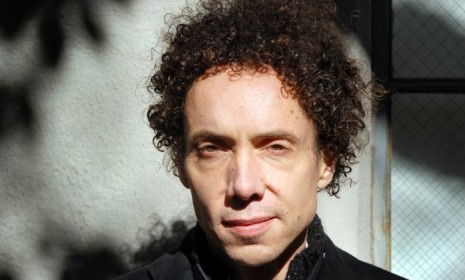Malcolm Gladwell tackles Twitter
The 'New Yorker' writer argues that — claims about Iran to the contrary — social media will never spark a social revolution. But it's ideal for armchair activists

A free daily email with the biggest news stories of the day – and the best features from TheWeek.com
You are now subscribed
Your newsletter sign-up was successful
Social networking evangelists believe Twitter and Facebook will usher in a new age of global civil rights engagement, writes Malcolm Gladwell in The New Yorker. The examples they commonly cite are the protests in Moldova and Iran last year, which were both reportedly precipitated by incendiary tweets. But this is a "puzzling claim": Twitter has "scant internal significance in Moldova," a country where very few people have accounts. In the case of Iran's "Twitter Revolution," the people taking to the site were "almost all in the West." Such revolutions came about, as did the 1960s civil rights protests in the U.S, through actual networks of influential friends and acquaintances — not the "weak ties" that make up our Twitter and Facebook cliques. Social networks are "enormously resilient and adaptable in low-risk situations," but are almost useless as a catalyst for genuine change. Here's an excerpt:
Twitter is a way of following (or being followed by) people you may never have met. Facebook is a tool for efficiently managing your acquaintances, for keeping up with the people you would not otherwise be able to stay in touch with. That’s why you can have a thousand "friends" on Facebook, as you never could in real life...
But how [does one enlist such large numbers of people]? By not asking too much of them.
The Week
Escape your echo chamber. Get the facts behind the news, plus analysis from multiple perspectives.

Sign up for The Week's Free Newsletters
From our morning news briefing to a weekly Good News Newsletter, get the best of The Week delivered directly to your inbox.
From our morning news briefing to a weekly Good News Newsletter, get the best of The Week delivered directly to your inbox.
A Facebook friend isn't the same as a real friend and that signing up for a donor registry in Silicon Valley today isn't activism in the same sense as sitting at a segregated lunch counter in Greensboro in 1960...
Social networks are effective at increasing participation — by lessening the level of motivation that participation requires. The Facebook page of the Save Darfur Coalition has 1,282,339 members, who have donated an average of nine cents apiece... In other words, Facebook activism succeeds not by motivating people to make a real sacrifice but by motivating them to do the things that people do when they are not motivated enough to make a real sacrifice. We are a long way from the lunch counters of Greensboro.
Read the entire article at The New Yorker
A free daily email with the biggest news stories of the day – and the best features from TheWeek.com
-
 Minnesota's legal system buckles under Trump's ICE surge
Minnesota's legal system buckles under Trump's ICE surgeIN THE SPOTLIGHT Mass arrests and chaotic administration have pushed Twin Cities courts to the brink as lawyers and judges alike struggle to keep pace with ICE’s activity
-
 Big-time money squabbles: the conflict over California’s proposed billionaire tax
Big-time money squabbles: the conflict over California’s proposed billionaire taxTalking Points Californians worth more than $1.1 billion would pay a one-time 5% tax
-
 ‘The West needs people’
‘The West needs people’Instant Opinion Opinion, comment and editorials of the day